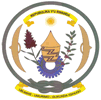

RURAL SMALL AND MICROENTERPRISE
PROMOTION PROJECT

 |
 |
RURAL SMALL AND MICROENTERPRISE |
|
 |
|
THE PROJECTComponentsThe project implementation period is seven years and is divided into three phases. The first two-year phase will deal with the establishment of operations, the second three-year phase will cover expansion, replication and consolidation. The third phase of two years will entail a gradual handingover to local institutions. Capacity-Building (Component 1) (USD 2.1 million)This component comprises three sub-components. Awareness-raising and community mobilization will consolidate the entrepreneurial capacities of SME operators and their organizations, especially those belonging to the subsistence SME category. Awareness-raising and community mobilization activities will start during the first year of the project in order to lay the groundwork for implementation. This sensitization process, combined with a participatory diagnostic assessment, will deepen understanding of project objectives by local authorities, technical partners (external service providers) and the beneficiary communities involved. Basic capacity-building will develop a sustainable service delivery system for SMEs. Following the diagnostic assessment, beneficiaries will be trained and assisted in starting up SMEs and developing associations. Beneficiaries will be supported through specialized training and functional adult literacy programmes, provision of information/documentation, structuring of joint liability groups, exchange visits and assistance with the legal framework of the associations. In addition, support will be provided to the professional organizations (federations, chambers) to strengthen their organizational capacity, management and negotiation skills, and prepare them to assume responsibility for service delivery to SMEs. These professional organizations are key to the project and represent the principal service delivery mechanisms for SMEs on a cost-recovery basis. Policy support for SMEs. The project will support the Ministry of Commerce, Industry Investment Promotion, Tourism and Cooperatives (MINICOM) in the establishment of a national stakeholder platform that will enable the exchange of information and advice on policy, institutional and legal issues relevant to SME development. Support to Rural SMEs (Component 2) (USD 6.4 million)Component 2 will support three sub-components. Support to management and technical skills training. A range of training programmes will be developed to support SME development. Successful participants from the sensitization and training activities under Component 1 are eligible to enter into an apprenticeship programme, which will teach the required technical/professional skills to starting entrepreneurs. Management and accounting training will be conducted in separate, successive courses for new and more advanced entrepreneurs. Training in loan application and credit management will develop entrepreneurs’ capacity to draft loan applications and to manage/repay their loans. Technical training in appropriate technology and in-country and international study tours will be organized for more advanced SMEs to improve their techniques and the quality of their products and services. Marketing support. Among the variety of activities offered under this sub-component, producers will receive support for their organizational development so that they can become more competitive and agree on a pricing system. Marketing courses include: (i) establishment of quality standards for certain products (carpentry, basket-weaving, dry-season activities); (ii) innovation in product diversification and packaging; and (iii) packaging, pricing, distribution and advertising. Trade halls will be constructed in the districts and provinces, and one such centre in Kigali will allow artisans to promote their products on the market. The project will support the participation of target group members at provincial and international trade fairs. To deepen understanding of the markets, selected marketing studies will be carried out at the sub-sector and commodity chain level. An information system for SMEs will also be developed. Technical support and assistance. The
Technology Development Fund under RSMEPP-I will become a sub-component
for technical support to assist artisans in the use of appropriate technologies
and in technology improvement. It will also provide training in simple
and innovative technologies. Support to Microfinance Institutions (Component 3) (USD 3.0 million)The project will have three lines of credit: (i) seed capital (RWF 15 000 - 200 000) through local financial centres or existing microfinance institutions (MFIs); (ii) regular credit through existing institutions (RWF 150 000 - 1 500 000); and (iii) investment credit for more advanced SMEs (RWF 1 000 000 - 5 000 000). Activities under this component hinge on the project facilitating the ‘graduation’ of SMEs from a lower to a more advanced operational category. The proposed financial services will be situated within the wider framework of the target group’s apprenticeship process. This process is based on a phased progression in terms of credit provision and savings mobilization, which at all times should constitute 20 to 30% of the amount of the latest loan taken out. For apprentices, this minimum may be lowered, and appropriate alternative incentives found for the poorest entrepreneurs. Support to banks and formal MFIs. The
project will categorize activities by credit type: Support to local financial centres. Based on the specific needs of SMEs, local financial centres (LFCs) will be developed to promote savings and disburse credit in rural areas. The project will support existing organizations in opening new branches and/or help existing branch offices improve their operations. Where existing organizations cannot be used or expanded, the project will support the establishment of new LFCs on a cooperative basis. Particularly with regard to savings, the legal and regulatory position of the local financial centres will be set within the framework of the recent Microfinance Instruction issued by the National Bank of Rwanda (NBR). A small team of national experts will be in charge of drafting procedures and trainer guidelines, data analysis, external audits, advisory studies and contact with the NBR. Costs will initially be borne by the project and when proven viable, LFCs will gradually pay for the services themselves. Project Coordination and Management (Component 4) (USD 3.2 million) Project management will be conducted through a decentralized
management structure with one project coordination unit (PCU) and six
decentralized offices. The PCU will be responsible for the coordination,
management, and monitoring and evaluation (M&E) of activities. The
PCU will be staffed by a coordinator, three component heads, an M&E
specialist, an accountant and an information specialist. The project will
establish decentralized offices at the provincial level to guide implementation
and to integrate the target group and other members of civil society into
the SME approval and implementation process. To ensure the support and
monitoring of local activities, there will be a provincial office with
a core staff comprising one head of office/M&E expert, and SME and
microfinance specialists. |